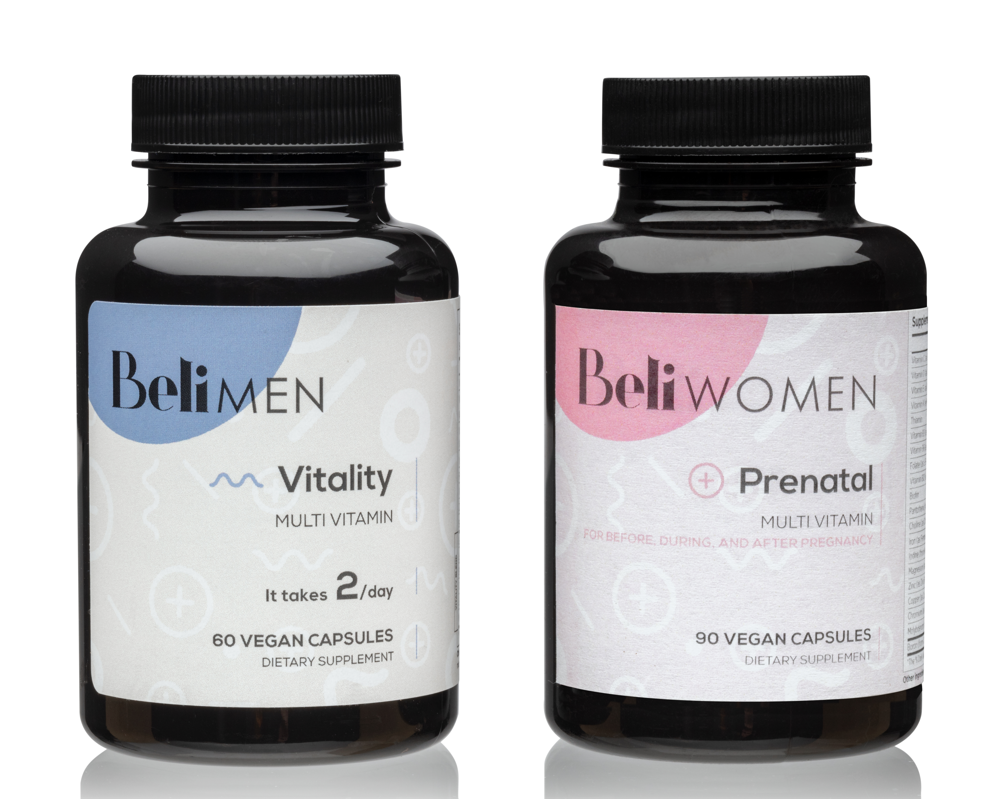While maternal factors such as age, hormonal imbalances, and uterine abnormalities are often cited as causes of miscarriage, research indicates that sperm health is also a crucial factor. A study published in the journal Fertility and Sterility found that men with poor sperm quality were more likely to experience recurrent miscarriage. Another study published in the journal Human Reproduction found that sperm DNA fragmentation was significantly higher in men whose partners experienced miscarriage.
So, what affects sperm health? Age is a significant factor, with sperm quality declining with age, increasing miscarriage risk. Lifestyle factors such as smoking, excessive alcohol consumption, and stress also negatively impact sperm health. A poor diet and nutrient deficiencies can also harm sperm health, making a balanced lifestyle essential for optimal fertility.
This is where Beli Vitality for Men comes in – a fertility supplement designed to support sperm health and improve fertility. Its key ingredients include Vitamin D, essential for sperm development and motility; Zinc, crucial for sperm production and testosterone regulation; Coenzyme Q10 (CoQ10), with antioxidant properties that protect sperm from damage; and L-Carnitine, which supports sperm motility and energy production.
The research supporting Beli Vitality's ingredients is compelling. A study published in the Journal of Clinical Biochemistry and Nutrition found that Vitamin D supplementation improved sperm motility and concentration. A review published in the journal Nutrients found that Zinc supplementation improved sperm quality and fertility outcomes. Research published in the Journal of Assisted Reproduction and Genetics found that CoQ10 supplementation improved sperm motility and reduced oxidative stress.
But why should men consider a fertility supplement? Even healthy men can have underlying sperm issues, and fertility supplements can improve sperm quality, motility, and count. A study published in the Journal of Urology found that men taking fertility supplements had a 23% higher pregnancy rate. By taking a fertility supplement, men can protect their fertility potential, boost their chances of conception, reduce miscarriage risk, and support overall health.
In addition to taking Beli Vitality, there are several lifestyle changes men can make to improve sperm health. Maintaining a healthy weight and exercising regularly can improve fertility outcomes. Reducing stress through relaxation techniques like meditation or yoga can also positively impact sperm health. Avoiding smoking and excessive alcohol consumption is essential, as is eating a balanced diet rich in fruits, vegetables, and whole grains.
Miscarriage is a complex issue, and while sperm health is just one factor, it's a crucial one. By understanding the statistics and research surrounding miscarriage and sperm health, couples can take proactive steps to improve fertility outcomes. Beli Vitality for Men offers a comprehensive fertility supplement solution, supported by industry research and designed to improve sperm health. By combining Beli Vitality with healthy lifestyle choices, couples can optimize their fertility journey and increase their chances of a successful pregnancy.




